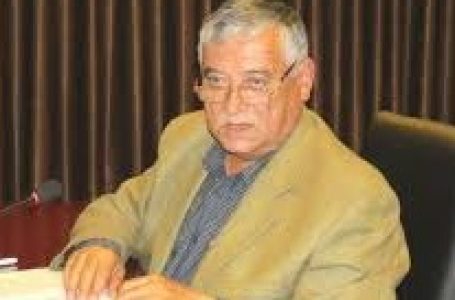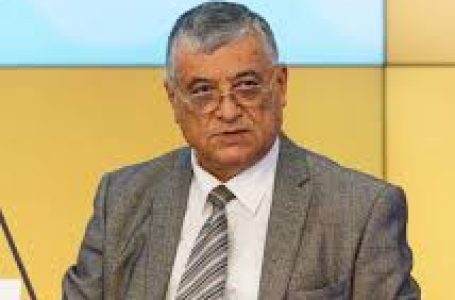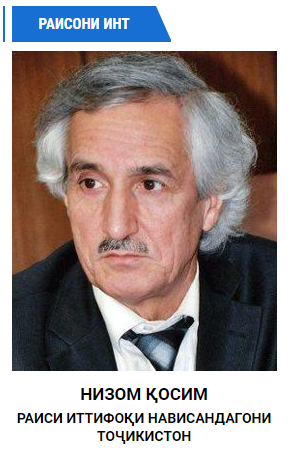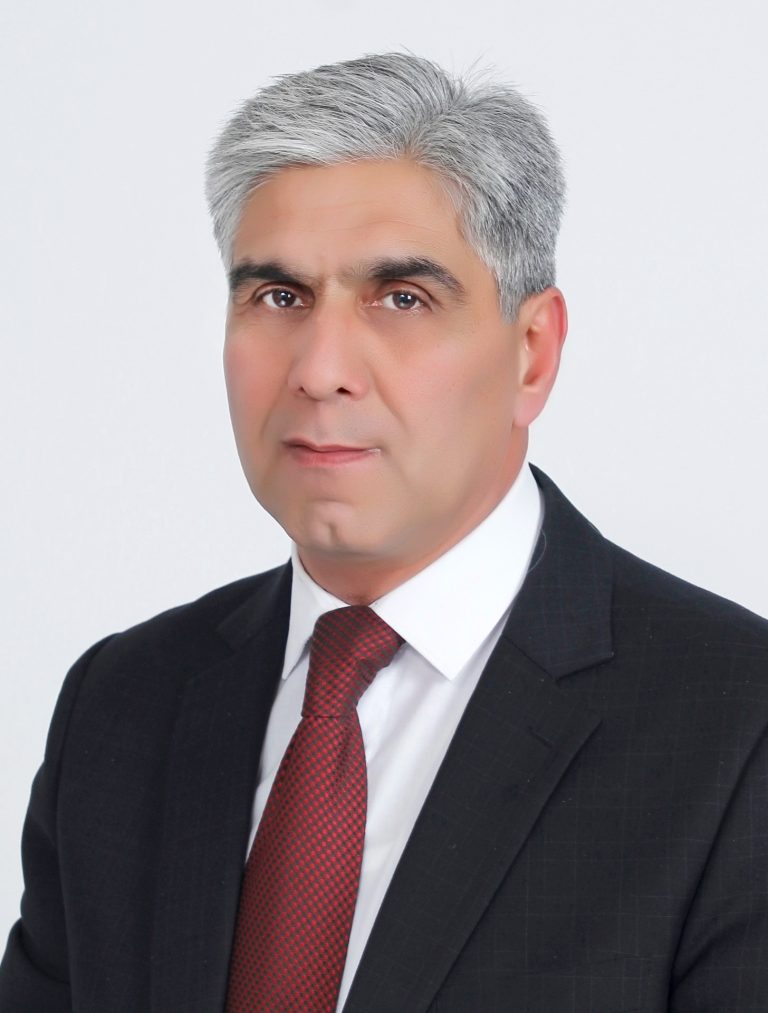The Writers’ Union of Tajikistan
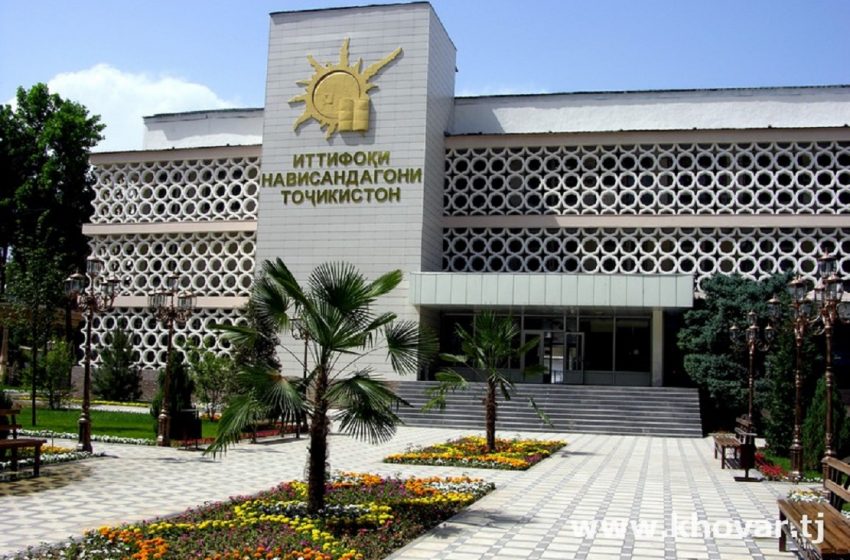
This year the writers, as all the people of the country, witnessed joyful political, economic, and cultural events, and the celebration of the 30-th anniversary of the Constitution of the Republic of Tajikistan can be considered as their highest point and charming, beautiful end. This fruitful year started with the news of the Founder of Peace and National Unity, the Leader of the Nation – the President of the country distinguished Emomali Rahmon for the writers – to publish and distribute to every family Firdausi’s immortal Shaname and with holding 815-th anniversary of Mawlana Jalaliddin Balkhi at the headquarters of UNESCO in Paris, creation of new verses devoted to the friendship with Uzbekistan, Azerbaijan, Turkmenistan, Kazakhstan and devoted to cultural days of Tajikistan, the visit of a large group of writers-translators from Russia and Kazakhstan to the Book Exhibition 2024 in these countries and cultural days of these countries in our country, made the atmosphere of our beloved Homeland to gain the feeling of confidence for good future.
As early as at the beginning of the State Independence of Tajikistan, in 1997, during his speech at the Congress of the Writers’ Union the distinguished Emomali Rahmon identified the tasks of the literature of this period as the following: “Today nobody demands that you write within the styles and framework of party and the class of socialist realism. The Writers’ Union, that earlier served as an important ideological organization of the state, can not serve as a centralized censor to any further extent. Such attempts are forbidden by the laws of our Republic. The Constitution of our state while quarantining the plurality of ideas, emphasizes that nobody has the right to enforce his/her will and wish, mode of his/her living and his/her ideas on other people’s neck. But plurality of ideas never restrains the real writer and inventor to neglect the benefits of the people and Homeland. It is because the sacred notions – people and Homeland are higher than any parity’s and ideological interest.”
In these wise ideas of the Founder of Peace and National Unity, the Leader of the Nation – the President of the country distinguished Emomali Rahmon we both see a kind of results of 60 years of the activity of the Writer’s Union and also the necessity of retaining its activity in a new historical condition and style of its activity during the years of Independence.
Really, the history of the Writers’ Union is the reflector of the new period of the history of Tajik nation, its mirror. In this not a long speech, due to lack of time we are trying to remember the main events and points to show the whole picture of the literary life of out nation during the 90 years of the existence of the Writers’ Union as brighter as possible.
The necessity of the establishing the
Writers’ Union in Tajikistan
The Writers’ Union is the product of the policy of collectivization of the 1920-ies and 1930-ies of the Soviet Union. According to this idea all the branches of life of the country were united based on their peculiarities and activities, so that it would be easier to mange them and to ensure their fruitful activity. First the agriculture and industry moved to this type of economics, and later it was diced that the sphere of literature based on the scattered societies of the writers should be united in a single collective organization.
That is why on April 23, 1932, the decision of the Central Committee of the All-Union Communist Party “On reforming literary organizations” was issued and based on this decision in June 1932 the decision of the Central Committee workers (bolsheviks) of Tajikistan “On reorganization of literary organization in Tajikistan” was adopted. According to the second decision the following personality were included into the organizational bureau of the Writers’ Union of Tajikistan: Lohuti, Ayni, Rasuli, Ulughzoda, Turaqulov, Daylami, Hasni, Rustamova, Azizi, Burhonova, Yurtaeva.
This bureau completed a lot of work on explaining and propagation and it fulfilled its duty successfully until May 1934, that is till the dated when the first Congress of the Writers’ Union took place.
The first congress of the Writers’ Union of Tajikistan
On April 1934 Soviet writers – Bruno Yasenskiy, Victor Shkalovskiy, Boris Lapin, Zakhar Khatsrevik, Pavel Vasilyev, Michel Zenkevich and French writer Pol Nizan led by S. Ayni arrived in Stalinabad from Moscow. On the night of April 22, “at the press building a wide meeting of the writers of Stalinabad city took place and in this meeting the brigade of Moscow writers organized a discussion with Stalinabad writers about their activities and shortcomings… The meeting took place under chair of comrade Bruno Yasenskiy. … On April 24 at six in the evening in the garden of the Soviet of the Commissars of the Soviet Socialist Republic of Tajikistan a grand meeting of the Organizing Committee of the writers of Tajikistan with comrades Braydo, Rahimboev, Shotemur, Lohuti, Ayni and the brigade of Moscow writers was held and at this meeting preparation for the Congress of the Writers of Tajikistan was discussed.”
The first congress of the Writers’ Union of Tajikistan was held from May 10 to 18, 1934 in Stalinabad city. The congress was opened by the Chairman of the Peoples Commissariat on Education Said Nosirov. Thirty two people were elected to the management team including: Braydo, Rahimboev, Ismoilov, Shotemur, Lohuti, Ayni, Nosirov (chairman of the organizing committee), Khidirov (Head of culture of the Central Committee), Melnik (head of the Komsomol Central Committee), Alekseev (Organizing Committee of Central Asia), Dehoti (Samarqand), Majidi (Uzbekistan), Rabii, Armon (Armenia), Girumabekov (Turkmenistan), Gulmirzoev (Qaraqalpoq), Pol Nizan (France), Rahim Jalil (Khujand), Tohiri (Panjakent), Safarov (Gharm), Davlatsho (Pamir), Davidov (Trade union), Mirshakar (Vakhsh), Mahmudova (Stalinobod), Tuyghun (Stalinobod), Yurtaev, Fuzaylov (Tajik Detachment), Hamdi (Tashkent), Malshakov (“Communist Tajikistan”), Daylami (“Tojikistoni surkh”), Tergulov (“Quizil Tojikiston”), Muzaffarova (Stalinobod).
Comrade Nosirov the first floor to Lohuti. Lohiti speaks for three hours in Tajik and Russian. Then S. Nosirov delivers a reported speech of the organizing committee of the Writers’ Union of Tajikistan to the congress. From May 11 to 17 in the meetings of the congress 34 writers, including Isoev, Obid Ismati, Jarror, Ghani Abdullo, Ali Khush, Jabborov, Ali Husin, Rahim Jalil, Tohiri, Mirshakar, Alekseev, Shklovskiy, Komili, Tuyghun, Rasuli, Jalol Ikromi, Ismoilzoda, Karimov, Isoev, Bektosh, Dehoti, Tsiprov, Panzenskiy, Umarjonov, Mar, Abudulloev, Mahmudov participated in the discussions of the reported speech.
Rasuli rises the issue of establishing literary newspaper, Fitrat made a detailed speech, Shkolvskiy speaks on the topic “Tajikistan described in Russian Literature, Kamoli speaks on language and literature, Tuyghun about Tajik dramaturgy and Zenkevich about the work with young writers in a sperate speeches. Ustod Lohuti proposes to celebrate 1000 anniversary of “Shahnameh”. Fitrat supports his idea.
The Chainman of the Soviet of Peoples Commissars of Tajikistan Abdullo Rahimboev spoke in the congress programed speech.
On May 19, under the chairmanship Ustod Lohuti the first plenum of management of the Writers’ Union of Tajikistan was held. “The plenum was held under signs of strong unity of the forces of Tajikistan’s writers and getting together around the party and the new leadership for implementation decisions and directives of comrade Braydo, that were given to them at the writers’ congress. The plenum elected the members of the secretariate consisting of comrades Nosirov (Head), Khidirov, Daylmi, Rasuli, Rahim Hoshim (secretary responsible).
Comrade Lohuti with the grand applauses was elected the honorary chainman of the management of the Writers’ Union of Tajikistan.
At the end of the meeting comrade Ayni made a short and enthusiastic speech and invited the writers work devotedly and like Bolsheviks under the central committee of the communist party of Tajikistan and the leadership of comrade Braydo and the basis of clear and explicit directives of the first congress of Writers’ Union of Tajikistan. (“Tojikistoni surkh, №115 (1713), May 24, 1934, p. 1.)
Thus, 90 years ago, in order to build the building of modern Tajik Literature the first brick were laid and Tajik writers became the owner of a special organization for their activities.
To assign the duties for the literature
As it was mentioned, the Soviet Union started the planning system in the economy, social and even cultural and literary activities. The plans for development of economy used to adopt at the conferences of the communist party and usually 5- or 7-years time framework was allocated for their fulfilment. Following this method the congresses of the Writers’ Union of Tajikistan were also convocated every five years. High official from the party used to participate and make speeches at these congresses and would assign duties for the literature. Congresses would have attracted the attention of the writers for the next five years to the topics that were considered in the massages as more important. Thus, a brunch of outstanding ordered literature appeared, that served to mobilize the people to new deserved deeds and would praise the creation of laborers. The communist party the considered “the method of socialist realism” as the standard for the activities of soviet writers. All other types of creation of literary work were either ignored or turned into a mean of supporting that goal. If the engineers of different spheres of life with their new inventions created new modern mechanisms and machineries, writers have been given the name of “the engineers of the human soul” and they were demanded to create and develop the conscious of the human being of the socialist society.
Totally during 90 years Tajik writers organized 15 congresses, which were held in the following order: the first congress – in 1934, the second – in 1947, third – in 1954, the fourth – in 1959, the fifth – in 1966, the sixth – in 1971, the seventh – 1976, the eighth – in 1981, the nineth – in 1986, the tenth – in 1991, the eleventh – in 1997, twelfth – in 2003, the thirteenth –in 2009, the fourteenth – in 2015, the fifteenth – in 2020.
The tasks, which were assigned from time to time be the congresses before the literature in general consisted of the following:
– to unite the creative forces to build a useful literature of a new period; to translate into Russian the works of Tajik writers and to translate into Tajik the works of Russian writers and other peoples of the Soviet Union; to expose the essence of fascism, to create works on the topics to defend the Homeland, to enhance the spirit of the solders and workers in the rear portion during the Great Patriotic War (1934–1946);
– through organizing the days of literature to popularize the best works of the Tajik poets and writers on the whole territory of the Soviet Union; to free the writers from old useless traditions; to cease the blinded imitation of the classics, to study and publish their works from critical point of view; to bring up the people in the sprit of love and respect of all peoples and nationalities (1947-1959);
– to struggle for clear and exemplary human moral, ideological cleanness, the description of heroes of the time, self-sacrifices of the people, great changes in the life (1959-1966);
– to strengthen the relations with the people, to study thoroughly and meticulously the life and to describe it a real manner and high ideological manner; to deliver to the wide masses the great massage of real life (1966-1971);
– to make a deserved contribution in the independence of the republic, to propagate the feeling to be the lawful owner of his land (1991-1997);
– to unite around the ideology of national unity and integrity of Tajikistan the Tajik separated nation; to struggle against those, who propagate only one type of spiritual and ideological ideas in the society and deprive the citizens form feely understanding, acceptance and developing their intellectuality (1997-2003);
– alongside with the protection of the past literary heritage and being proud of it adding to this treasury the deserved and valuable works (2003-2009);
– to resist globalization, to enhance cleverness and cunning of the youth, the protection of national traditions and culture, to write works on drug addiction, the smuggle of narcotics, conversion to extremist movements, corruption and moral corrupt behavior (2009-2015);
– to describe the modern period and the human being as creator and loving Homeland, reflection of the actual issues of behavior and intellectuality, to invite the people to unity, peace and stability and to block the road of extremist and radical movements, to obey the rules and orders of celebrations and festivities, struggle against superstitions, and religious fundamentalism (2015-2020).
The Writers’ Union implement the instructions of the state and party organs in the following three ways – to put together the propagation groups, literary gatherings, and writing works on different genres.
The advent of great works
Thanks to the measures mentioned, the Writers’ Union became a great literary school and a great law of cultural policy, as a result numerous works appeared that introduced our literature and culture to the world. The following works are of that type: Dokhunda, Slaves, Old School, Reminiscences by S. Ayni, the stories by Hakim Karim, The Morning of Our Youth, Navobod, Sogdian Legend, Vose, Firdausi by S. Ulughzoda, Tirmor, Happiness, The Fire’s Daughter, Twelve Gates of Bukhara, Overthrown Throne by J. Ikromi, Eternal People, Shurob by R. Jalil, Summer by P. Tolis, Old People, In that World, Corner Ward, Abyss by F. Muhammadiev, Bee with Glasses, Nodar’s Wonders by A. Bakhori, Faithfulness, Don’t Think That Every Forest is Free by F. Niyozi, Farther’s Land, Norak, The Plain of Love by J. Akobirov, The Water of Light, Shame and Dignity by M. Khojazod, The Silence of Mounts, The Snow will Melt, Three Days of a Spring by S. Tursun, A Free Captive, A Wrong Callender, Khumor’s Revenge, Hayjo by U. Kuhzod, Khubon by M. Bakhti, Shield’ Stone, Gypsi, Actor by Sorbon, After the Death of the Father, Teenagers, The Circle of Wild Wind by A. Samadov, Rukhsora, Thread and Woof by B. Firuz, The Play of the Destiny by J. Akobirov, The Stars on the Head of Tanur by C.R. Afardi, Sarmadeh, Shanshah by Bahmanyor, poetical dostons like A Travel to France, Two Targets, Mardiston, Tany’s Victory by A. Lohuti, Indian Legend, The Son of Homeland, Hasan the Carter, The Voice of Asia, Eternal Light by M. Tursunzoda, Golden Village, Lenin in the Pamirs, the Wisdom’s Rebellion by M. Mirshakar, The Song of Stalingrad, My Name is Tajikistan, Sino’s Cradle by M. Qanoat.
To educate the writers
The Writers’ Union of Tajikistan, the foundation of which was laid by Sadriddin Ayni and Abulqosim Lohuti, embraced and educated the greatest modern Tajik writers. Today the name of such ustods like Sadriddin Ayni, Abulqosim Lohuti, Mirzo Tursunzoda, Mirsaid Mirshakar, Jalol Ikromi, Rahim Jalil, Fazliddin Muhamamdiev, Mumin Qanoat, Sattor Tursun, Louq Sherali, Bozor Sobir, Gulrukhsor Safi, Gulnazar Keldi are known in many countries, their long-lasting works serve as the deserved passport of our modern literature.
The well-known writers such as Payrav Sulaymoni, Khabib Yusufi, Boqi Rahimzoda, Abdusalom Dehoti, Hakim Karim, Zufarkhon Javhari, Abdulghani Mirzoev, Aminjon Shukuhi, Gaffor Mirzo, Samad Ghani, Nodir Shanbezoda, Rahim Hoshim, Zhola Bade, Sohib Tabarov, Nosirjon Ma’sumi, Vohid Asrori, Shariffjon Huseinzoda, Khudoi Sharifzoda, Muhiddin Aminzoda, Kamol Aini, Atakhon Saifulloev, Abdunabi Sattorzoda, Nizom Nurkonov, Rajab Amonov, Habib Ahrori, Gulchehra Sulaymoni, Ulmas Jamol, Abdujabbor Kahhori, Ashur Safar, Qutbi Kirom, Burkhon Ghani, Habibullo Fayzullo, Ghoib Safarzoda, Maston Sherali, Jura Baqozoda, Ibod Fayzullo, Ubaid Rajab, Mehmon Bakhti, Shirin Bunyod, Sulton Shohzoda, Hiloliyon Askar, Salimsho Halimsho, Abdulhamid Samadov, Saidali Mamur, Karomatullohi Mirzo, Nurmuhammad Niyozi, Abdusalom Atoboev, Fayzullo Ansori, Sorbon, Juma Odina, Jonibek Akobirov, Muhiddin Khojazod, Askar Hakim, Mirzo Faizali, Muhammad Ghoib, Sulton Safar, Aslam Adham, Haqnazar Ghoib, Doro Najot, Ramat Nazri, Kamol Nasrullo, Khudoynazar Asozoda, Muteullo Najmiddinov, Barot Abdurakhmon, Safarmuhammad Ayubi, Jura Hoshimi, Farzona, Rustam Vakhobzoda, Mukhammadzamon Solekh, Bakhtiyor Murtazo, Nur Tabarov, Nazri Yazdoni, Ato Hamdam, Abdukholiq Nabavi, Karim Davlat, Dodokhon Egamzod, Abdurakhmon Abdumannon, Zulfiya Atoi, Narimon Baqozoda, Latofat Kenjaeva, Abdurakhmon Rasuli, Ahmadjon Rahmatzod, Iskandari Khatloni, Zarif Ghulom, Abdurofe Rabizoda, Jura Bakozoda, Abdujabbori Abdughaffor, Sherali Muso, Alimuhammad Murodi, Mirzo Shukurzoda, Maruf Bobojon, Abdujabbor Rakhonzoda, Azizi Aziz, Ozar Salim, Ozorakhsh, Yunus Yusufi, Mutaram Hotami, Mekhrinniso Bobobekova, Najmiddin Shohinbod, Ravshan Makhsumzod, Muhammadaliy Akami, Gurez Safar, Davlat Safar, Ranoi Muboriz, Hayrandesh, Davlati Rahomoniyon, Laljubai Mirzohasan, Abdusattori Rahomon, Abduqodiri Rahim, Shahriyai Adhamzod, Adibai Khukandi, Gulnozi Tohiriyon, Sirojiddin Ikromi, Nemat Otash, Saidahmadi Zardon and others enriched and boosted the treasury of the nation with their poetical, prose, publicist, drama and their researches.
The Publishers of the Writers’ Union
Tajik writers became the owner of their own publishers. In 1927 the journal the Rahbari Donish (Leader of Knowledge) (now Sadoi Sharq (The Voice of East)), in 1949 the Russian language journal Pamir, in 1981 a weakly called Farhangi Tojikiston (Tajikistan’s Culture) (now Adabiyot va Sanat, Literature and Art) were established. This publishers served to propagate literature, to mobilize the writers to implement the cultural policy of the government, to reflect the literary life of Tajikistan and the world, to originate different issues of culture, to educate young writers, to strengthen friendship ties with the writers and literatures of the peoples of the world.
Prominent writers such as Foteh Niyazi, Pulod Tolis, Abdumalik Bahori, Ubayd Rajab, Loiq Sherali, Abdulhamid Samad, Urun Kuhzod, and Jonibek Akobir were editors of the magazine Sadoi Sharq at various times. Askar Hakim, Gulnazar Keldi, Habibullah Noziri, Karomatullo Mirzoev, Mansur Surush, and Parda Habib were editors of the weekly Adabiyot va Sanat. M. Rozhakov, V. Kirillov, N. Klado, Masud Mullojonov, Boris Pshenichny, Iskandar Hamroqulov, Sergey Sukhoyan, Nur Tabarov, Juma Quddus, and Mansur Surush were editors of the magazine Pamir. Each of these three publishers were and are the great center of testing of young writers, their unreplaceable educational institution, especially young artists.
Literature in Russian and Uzbek languages
Thanks to the establishment of the Writers’ Union, writers writing in Russian- language developed their skills in Tajikistan and Uzbek-language literature also started its activities thanks to writers writing in Uzbek language.
The following writers made a significant contribution to the development of Russian-language literature in Tajikistan: Vasily Kirillov, Lev Kandinov, Mikhail Levin, Nikolai Lesnoy, Yakov Nalsky, Marina Nekrasova, Arnold Odintsov, Leonid Pashenko, Elena Petrova, Mikhail Tabachnikov, Valery Talvik, Felix Toshmuhammadov, Alexander Usenko, Marianna Fofanova, Larisa Demidchik, Boris Pshenichny, Leonid Chigrin, Shohnazir, Eleonora Kosimova, Alexander Yablokov, Hafiz Saifulloev, Mansur Surush, Nori Rabbimdukht, Andrey Smetankin, Sergey Sukhoyan, Said Sangin, Komila Kamolova, Vladimir Frolov, Azim Amin, Muzaffar Haidar, Iskandar Hamroqulov, Rahim Haidar.
The following writers: Ashirmat Nazarov, Mahmud Tulqun, Ulmas Jamol, Juraqul Ajib, Eshmuhammad Donokhonov, Abdullo Zuhur, Turan Tuychiev, Urunboy Usmon, Shodmon Jura, Sulaymon Ermatov, Omon Rajab, and Omonboy Zhumanov have made a significant contribution to the development of Uzbek-language literature in Tajikistan.
Subdivisions in the Regions
In 1953 Soghd Department, in 1969 Kulob Department, in 1987 Bokhtar Department, in 1994 the Badakhshan Department of the Tajikistan Writers’ Union were established.
In different year Sogdian Department was headed by Rahim Jalil, Nurmuhammad Niyazi, Atakhon Sayfulloev, the Kulob Department by Shohmuzaffar Yodgori, Saidjon Hakimzoda, the Bohtar Department by Muhammadali Ajami, Khairiddin Khairandesh, and the Badakhshan Department by Shirin Bunyod. In response to the growing demand for the word of literature some local authorities in cities and districts also opened departments at their own expense, and their number today reaches seven.
Currently, the responsible secretaries of the regional departments are: Sughd – Ahmadjon Rahmatzod, Khatlon – Haqnazar Ghoib (Kulob region), Ozar Salim (Bokhtar region), Badakhshan – Laljubai Mirzohasan.
Chairman of the Writers’ Union of Tajikistan
The following people served as the Chairman of the the Writers’ Union of Tajikistan: in 1934 Said Nosirov – Chairman of the Board of the Union of Soviet Writers of Tajikistan, Rahim Hoshim – Executive Secretary; in 1935 Said Nosirov – Chairman of the Board of the Union of Soviet Writers of Tajikistan, Sotim Ulugzoda – Executive Secretary; in 1936 Mavlonbekov Ahmadbek – Chairman of the Board, Gani Abdullo – Executive Secretary; 1937–1938 Shanbezoda Nodir – Chairman of the Board, Sotim Ulugzoda – Executive Secretary, 1939–1944 – Mirzo Tursunzoda, 1944–1946 – Sotim Ulugzoda, 1946–1977 Mirzo Tursunzoda, 1977–1991 Mumin Qanoat, 1991 – 2003 Askar Hakim, 2003–2015 Mehmon Bakhti, from 2015 to the present Nizam Qosim.
Writers’ Union of Tajikistan during the state Independence
The ideological independence of the writers started at least 15 years before Tajikistan’s State Independence from the publishing the doston Tajikistan – is My Name by Mumin Qanoat. This doston was the result and summary of the freedom thinking, wish for independence and national identity of our writers Sadriddin Aini, Mirzo Tursunzoda, Sotim Ulughzoda, that was later continued by Loiq Sherali, Bozor Sobir, Gulrukhsor, Gulnazar, Ghaib Safarzoda, Saif Rahimzodi Afardi, Bahmanyor, Farzona, Nizom Qasim, and other colleagues.
The election of a young man with a new thinking and one that loves his nation and Homeland Emomali Rahmon at the 16-th session of Supreme Soviet of Tajikistan in 1992 gave this trend a new impulse.
If up to this period patriotic movements of intelligentsia met with the resistances of the state authorities, distinguished Emomali Rahmon turned the aspirations for independence and national self identity into the official state policy. Thus, for the first time in the history of Tajiks statehood the aspirations of developed intelligentsia coincided and overlapped with the goals of the government and that led to the unity of the state and society.
The Writers’ Union at the first period of Independence led the power of the writers to restoring peace and stability and unity of all the inhabitants of the country ragged by the war.
Members of the Writers’ Union Mehmon Bakhti participated in the peace negotiations between Tajiks, Karomatullo Olimzoda and Nazirkhuja Davlat, Bakhtiyor Murtazoev participated in the work of the National Reconciliation Commission; Mumin Qanoat, Sulton Mirzoshoev, Loiq Sherali, Haknazar Ghoib, Shirin Bunyod, Gulnazar Keldi, Abdulhamid Samadov, Qurbon Vose, Sattor Tursun, Kamol Nasrullo did significant work in strengthening the Movement for National Unity and the Revival of Tajikistan.
Real Independence, abolition the ideological restrictions, removal of censorship and leading the policy of the “Open doors” by the Government of Tajikistan created new opportunities for the activities of writers. Opening the gates to the four sides of the world, especially to the Persian language speaking countries positively influenced the world views and style of creation of our writers. Preserving the Writers’ Union of Tajikistan as the propagation instrument of the state policy, permanent meeting and talks of the Leader of the Nation with intelligentsia, to proclaim ustods Sadriddin Ayni and Mirzo Tursunzoda as National Heroes, involving the writers in different state events, the participation of the Head of the state in the Congress in 1997, the creation of gathering of the writers in Navroz area (2016), expressing his love with the words “I love writers”, the celebration of the anniversaries of past and present great writers, organizing National Contest “Furughi subhi donoi kitob ast” (Book is The Light of Knowledge), the construction the grandeur National Library building, the creation of the Department of the Writers’ Union in Badakhshan (1994), the erection of memorial complexes to Kamoli Khujandi and Jaloliddini Balkhi (2019), the creation of Rudaki, Jomi and Navoi parks, the publishing of the series of book of classical writers called “Akhtaroni adab” (Stars Of Literature) and the series works of modern writers devoted to the 30-th anniversary of Independence, the publishing of dozens of separate prose and poetry books, the publishing of Shahnameh by Firdausi and its distribution to every household in the country with the financial support of the President of Tajikistan are just part of numerous measures and initiatives, that in that period were implemented for the benefit of literature and writers.
The writers in their turn, in return to these concerns working hard days and nights created new interesting, much appealed and demanded works. If we compare the works created during the 30 years of Independence with 70 years of the Soviet Period, we clearly see what achievements our literature acquired. If during the 70 years only 30 romans have been created, during the 30 years the number of romans is more than 300, let alone the stories and narratives, dostons and different kinds of poetical verses. Only on the topic describing the challenging work of the Tajik people and the great Leader of our Nation at Roghun Hydro Power Station 2 novels, 1 play, 12 narratives, 10 doston and poetry, 30 publicistic essays and more than 200 different pieces of poetry have been created.
Such work on other different topics connected to the policy creation and construction of the Government of Tajikistan, including the construction of highways, tunnels, hydropower stations, industrial and agricultural enterprises, international initiatives of the Leader of the Nation on the issues of water, Navroz celebrations, historical monuments of the Tajik people and etc. were created that also permanently were covered by mass media and publishers. It is an honor that during the 33 years of State Independence our writers participated in composing dozens of scripts of great massive shows with the participation of the Leader of the Nation and contributed to the cause supporting the cultural policy of the Government of the country.
The writers of the period of Independence. Work with youth.
From 1991 up today three generations of writers stepped into the stage of literature. Organizing the republican consultations of the young writers, as is the traditions, takes place every five years and from the total number of writers about 200 were accepted to the membership of the Writers’ Union out of which the shining stars are the following: poets Rustam Vahhobzoda, Khairandesh, Ozar Salim, Ozarakhsh, Ato Mirkhozha, Rano Muboriz, Gurez Safar, Davlat Safar, Shahriya Adhamzod, Nuqrai Sunnatniyo, Salimi Zarafshonfar, Abdullohi Rahnamo, Abdujabbori Surush, Abduqadiri Rahim, Safari Amirkhon, Fayzi Ashur, Abdusattori Rahmon, Voris, Narzullo Aziziyan, Davlat Rahmonian, Mirzohasani Sultan, Behrouzi Zabihullo, Mirzo Kenja, Tolib Luqman, Khushomadi Alidod, Gulnoz Tohiriyon, Rudobai Mukarram, Bahrom Rahmatzod, Rustami Ajami, Surayoi Hakim; writers – Yunus Yusufi, Ravshani Makhsumzod, Mansur Surush, Mirzonasriddin Saidov, Sirojiddin Ikromi, Najmiddin Shohinbod, Majid Salim, Abdurauf Murodi, Saidahmadi Zardon, Abdulvose Sanginov, Karim Davlat, Maryambonu Farghani, Dilovari Mirzo, Sipehr Hasanzod, Matlubai Yormirzo, Bahmanyor Murod; playwrights – Shodi Saleh, Nurullo Abdullo, Tohiri Muhammadrizo; publicists – Sherali Muso, Javid Mukim, Hasani Aso, Huseini Narzullo, Shokhtolib Shokhqosim, Tilloi Nekqadam, Bakhtiyor Hamdamov; children’s writers – Azizi Aziz, Gulchehra Muhammadieva, Murodali Sobir, Najmiddin Salohiddinzoda, Gulsara Avazova, Nargisi Murodali, Abduvohidi Zevar, Gulnisoi Rizvonsho; critics and literary scholars – Mahmadyusuf Imomzoda, Abdujabbor Rahmonzoda, Nosir Salim, Murtazo Zainiddin, Muhammadullo Tabari, Matlubai Mirzoyunus, Tojiboy Sultani, Zamira Ulmasova, Misbohiddini Narziqul, Zamira Ghafforova, Anzurat Malikzod, Bahrom Mirsaid, Umeda Ghafforova, Shamsiddin Saleh, Ravshan Hamroh, Muhriddin Saburi, Hafiz Rahmon, Subhon Azamzod; translators – Azim Amin, Nori Rabbimdukht, Komila Kamolova, Surayo Ahmadzoda; Karim Haydar; Urinboy Usmon, Omonboy Jumanov.
Most of the above-named writers and scholars completed works worth consideration. Especially the impact of Rustam Vahhobzod, Khayriddin Khayrandesh, Ozar Salim, Ozarakhsh. Laljubai Mirzohasan, Azizi Aziz, Mahmadusuf Imomzoda, Davlati Rahmoniyon, Misbohiddini Narziqul, Zamirakhon Ulmasova, Hafiz Rahmon in educating writers and young researchers of literature is worth to mention. The educational discussions of the young writers in 2015 and 2020 showed that the number of juvenile and young writers are increasing year after year. Up to 80 young creative writers participated in every discussion and the best ones were recommended to the membership of the Writers’ Union. The following young and hopeful writers were accepted toe the membership of the Writers’ Union: Buzurgmehri Bahodur, Buzurgmehri Tajiddin, Ibrohim Dustalizoda, Maftunai Qosim, Iskandar Rahmon, Tahmina Emin, Sinoi Abuali, Shahriyor Olimi, Bahmanyor Said, Adibai Habib, Buzurgmehri Hakim, Sadriddin Hasanzoda, Nasimbek Qurbonzoda, Surayo Ahmadzoda, Saodat Sattori, Ehson Rajabi, Bobaki Sughdi.
The management of the Writers’ Union within the framework of its capacity taking measures to improve the material conditions of young writers and taking permanent measures in terms of developing their skills and talent. Now, responsible positions at the Writers’ Union and the offices of the journals and newspapers are allocated to young talented and prospected staff of the Writers’ Union is gradually renewed from the number of these young talents.
The most important achievement of the Writers’ Union
– it united the scattered writers of Tajikistan and directed their power to the benefit of the nation and state;
– it freed the literature from legendary heavenly story telling, high-flown romantism, affected by religious chronological defection and matched it with the real life of human being;
– introduced to the Tajik literature new genres – drama, libretto, novella, new poem, white poem, quadrant, literary story, script writing for films, scientific fantasy;
– it put scholarly literary critics into the service of literature;
– it changed translation into a special type of literary activity;
– it made unprecedented contribution in propagating world literature in Tajikistan and Tajik literature in the world and improvement of literary relations.
– it assisted to generate the norms of literary language;
– it created great themes on love towards Homeland, coexistence with the peoples of the world, peace and unity, creation and construction activities, large-scale constructions and completed great actions to propagate them;
– it made unprecedented contribution in introducing the image, culture and civilization of Tajik nation to the people of the world;
– it assisted to the process of improvement of the Russian and Uzbek language literature in Tajikistan;
– it created special literature for children and adolescents;
– he introduced to the literature the description and portrayal of the life of a woman – a mother as a special term and made a great contribution to rise of the position of a woman in;
– it contributed to the education and studies of ten generations of Tajik writers;
– it contributed to increasing the honor and dignity of the Tajik nation at the level of Soviet Union and in the world through valuable works of well-known and distinguished writers;
– it took effective measures to protect Tajik writers an scholars from different types of pressure and oppression;
– it completed great work to educate millions of inhabitants of Tajikistan and neighboring countries, to improve the ideology and morale of modern human being;
– it made deserved contribution to the civilization of Tajik people to become rich, successful and more colorful;
– it became the cause of appearing prominent works, that the people of the world will read them and respect the Tajik people for the next hundred years;
In conclusion, I would like to mention that the establishment of the Writers’ Union of Tajikistan became an influential event and one of the most important factors for the development of intellectuality of our people and, of course, it is difficult to mention all its achievements and the personalities that contributed in this process in a single report. I hope, other sides of our activities will be mentioned and emphasized by our colleagues and in general the image of our moral, spiritual, creative organization will become more brighter and shining.


